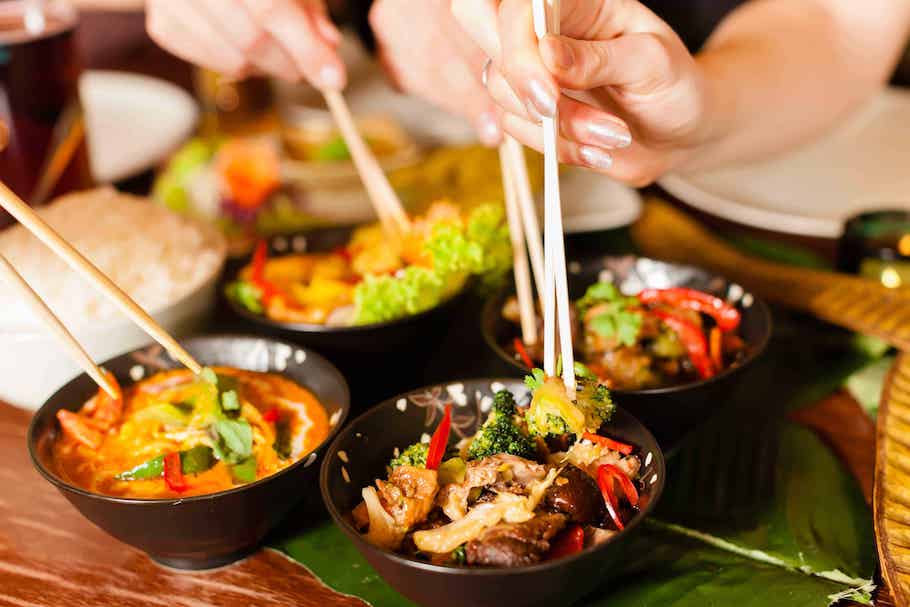
Why China? - Chinese Cuisine
A Chinese proverb states: "Food is the heaven of the masses". This clearly shows the importance of food to the Chinese. Here the traditional Chinese holistic approach regarding almost all things is expressed in many ways. An important criterion is the perfect balance of aroma, appearance and taste. Furthermore a good meal has to comprise the five flavors spicy, sour, sweet, bitter and salty, which also have to be in harmony. In addition, many ingredients are selected according to aspects of traditional Chinese medicine and are used only during the preparation of the meal and not in the dish itself.
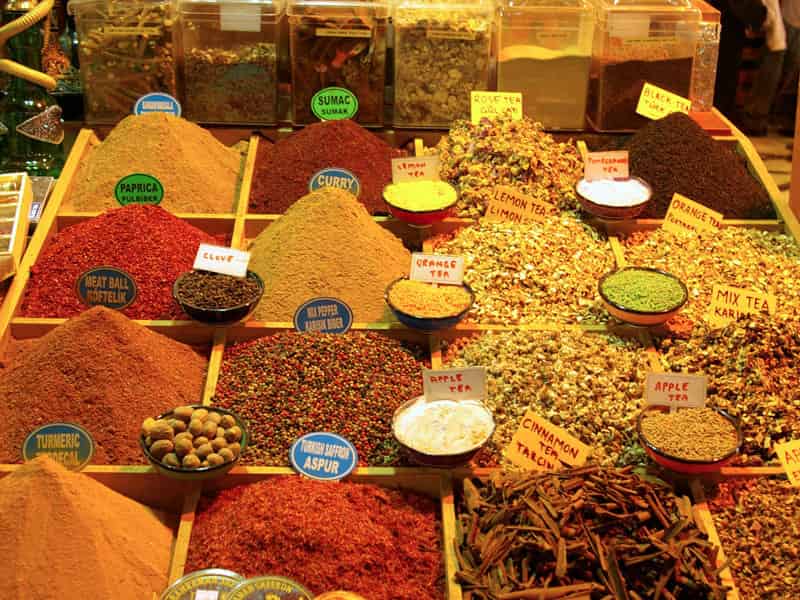
Chinese spices
Chinese love their food fresh and therefore like to go out for eating, also because it is so inexpensive. A rule of thumb is that at least one dish per person should be ordered. Each dish is then placed in the middle of the table so that everyone can eat what they like. Despite the strict rules regarding the preparation of Chinese food, when it comes to eating itself there are few rules in everyday life. The most important thing is that one feels comfortable.
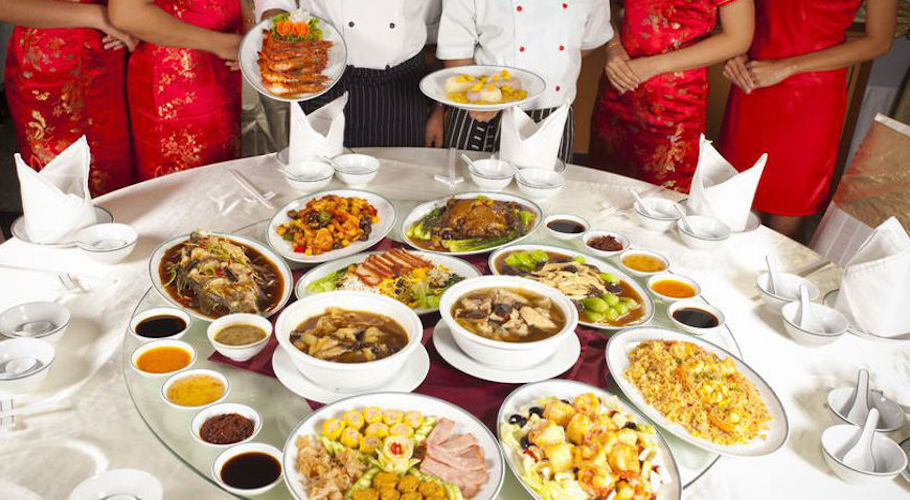
Typical Chinese dishes
Clear table rules are only necessary at official occasions. These rules are very similar to those of the Western world with the exception of the sitting order. However, there is no need to worry. As a foreigner, you will be shown your seat, and usually the seat of honor will be assigned to you. In China it is considered polite to serve food and drinks to the guests sitting close to you. If you stick to this rule and pour your table neighbor a drink or put some food on his or her plate, they will appreciate that very much and praise you for your intercultural skills. If something should be put on your plate that you do not like, just try a little and leave the rest there. This signals your hosts, in a polite fashion, that you would rather skip the next round. In the case that you are invited to a Chinese wedding, you should hold back at the beginning as usually several courses will be served.
The different Chinese regional cuisines
Due to the size of China and its different climate zones that grow quite different spices and herbs, there are up to 500 local cuisines. Local people are always very proud of their regional cuisine and will make every effort to convince a foreigner of its excellence. Again, do not worry: you will hear of many extravagant or exotic dishes in China, many of which you can certainly get. However, most of the main ingredients are by no means unusual.
The Chinese regional cuisines are a result of the local climate and the influence of other cultures. Thus, the traditional ingredients in the Northeast with its climate so similar to Europe differ from other parts of China. The regional cuisines are difficult to divide clearly into strict categories because there are no fixed definitions. You will also find influences of other regional cuisines and Western national cuisines all over China: You are not bound to the taste of the region. One possible classification is the following:
- Dongbei cuisine:
This is the way of cooking of the Northeast of China, and it is also referred to as Beijing cuisine. The main ingredients are wheat, cabbage, leeks, lamb, and pork. Especially famous are the noodle dishes and dumplings as well as the world famous Beijing roasted duck, which is eaten rolled up within small pancakes. The dominant flavors of the Dongbei cuisine are compared to other regions salty and mildly spicy.
- Fujian cuisine:
This refers to the traditional food in the region around Shanghai and Hangzhou. Because of the long coastline and many large rivers, seafood plays an important role here. Great emphasis is put on a colorful presentation of the food. The typical regional flavors are sweet to sweet-sour.
- Canton Kitchen:
A contemporary Chinese joke goes like this: "People from Canton (Guangzhou) eat everything in the heavens, on earth and in the water - except aircrafts, tanks and submarines". This is due to the fact, that probably no other regional cuisine of China uses as many ingredients, and you can try dishes here that you would normally not find in the rest of China. The dominant flavors: slightly spicy and slightly sweet
- Hunan-Sichuan-Yunnan cuisine:
This is the cuisine of China’s Southwest. The most famous regional dish is called hot pot, a kind of hot soup fondue, in which one cooks all sorts of ingredients. Accordingly, one can imagine that the locals here love it especially spicy. In this region vegetables are very common and the dishes tend to be very spicy.
- Other regional cuisines:
In addition to the main regional cuisines, there are many other ways of cooking, especially in the border or minority areas. However, they are typically not fundamentally different from the surrounding provinces. The most significant exceptions are the Tibetan, the Uighur, and the Mongolian cuisine. If you do not have opportunities to travel to their home regions, you will surely be able to find restaurants with appropriate dishes in all major cities.
Some general guidelines:
- Practice to eat with chopsticks before you depart to China. You will be praised for being able to use them properly for sure
- Put some food on your seat neighbors plate. This is considered to be very polite.
- Before you start to drink alcohol, cheers the first time with your friends. The best way is to say “Gan bei!" (Dry glass) and then to empty the whole glass.
- If you do not want to eat something, mention it to your friends before ordering.
- If you do not want to drink rice wine, say something before the first glass is poured. It is not rude if you prefer to drink beer instead, or if you want to drink no alcohol at all.
- Do not be shy! Chinese people are very open and if you can say something in Chinese, they will love you for it!
- If you want to pay, excuse yourself to the toilet and go to pay at the cashiers counter.
- In China coziness is the most important thing when it comes to eating! To sit upright or not to put your elbows on the table is not an aspect of everyday manners. The same is true for smacking or slurping - both are generally acceptable.
- Although the regional customs differ as to the exact seating arrangement, it is generally true that the guest of honor sits opposite to the door. It is considered polite to offer this seat to the oldest family member, your boss or to the guest of honor. Normally, however, one will let you sit there.
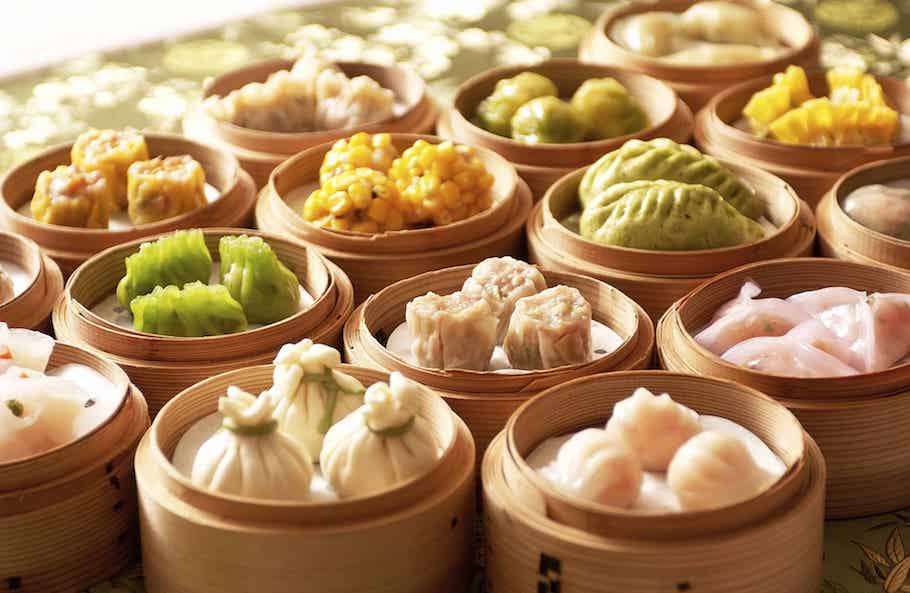
Chineses snacks
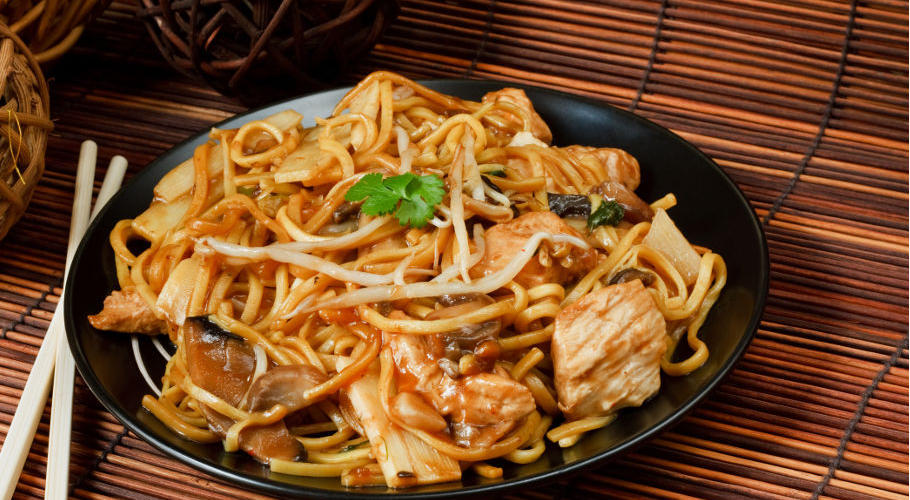
Chinese noodle food